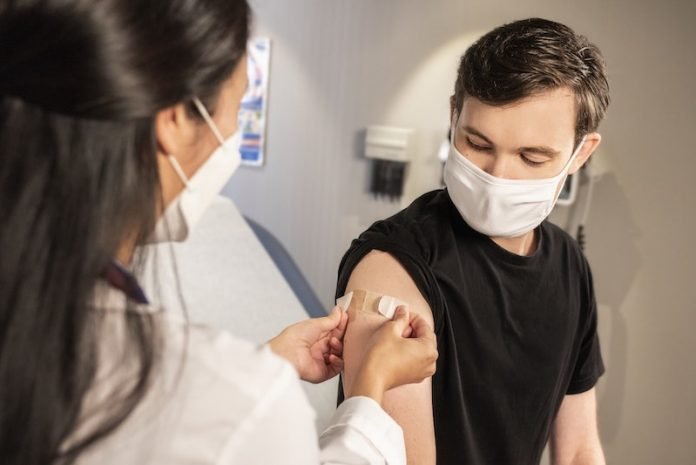
In a new study from King’s College London, researchers found that vaccination reduces the risk of severe COVID-19 infection.
However, adults who are frail, living in areas of high deprivation or have unhealthy lifestyles are more at risk of COVID-19 infection and getting ill, despite being vaccinated, compared to other vaccinated people.
In the study, the team analyzed data from 1,102,192 individuals who had been vaccinated.
They examined in detail 2,278 adults who tested positive for COVID-19 after vaccination and compared them to both vaccinated adults who tested negative for COVID-19 and unvaccinated adults who tested positive for COVID-19.
The team focused on infections developing more than 14 days after receiving either one dose of the Pfizer or AstraZeneca vaccine,
They showed fewer, milder symptoms were reported in vaccinated people compared to unvaccinated adults who had contracted the virus, and those who’d had a jab were more likely to be completely asymptomatic.
Only 104 individuals were hospitalized in the vaccinated group, compared to 239 in the unvaccinated group.
People over 60 have a higher risk of long-COVID generally, but analysis showed that the risk of prolonged symptoms was down by 28% in the unlikely event of infection after a vaccine.
This suggests that the risk of long COVID is substantially less if an older person is vaccinated.
The nature of symptoms was similar to unvaccinated adults—e.g. anosmia, cough, fever, headaches, and fatigue—but all these symptoms were milder and less frequently reported by people who were vaccinated, and they were half as likely to get multiple symptoms in the first week of illness.
Sneezing was the only symptom that was more commonly reported in vaccinated people with COVID-19.
However, individuals who had health conditions that limited their independence—such as frailty—were more at risk of COVID-19 infection after vaccination, and of getting sick.
Age on its own, however, was not a risk factor. Adults living in areas of higher deprivation were consistently at more risk of infection despite vaccination even when adjusting for health behaviors.
COVID-19 infection in vaccinated individuals was less likely in individuals with a healthy lifestyle, for example, a healthy diet and normal body mass index.
The findings demonstrate the necessity of targeted policy towards at-risk groups.
Frail adults in residential settings have already shown to be disproportionately affected by COVID-19.
The research team suggests strategies such as a timely booster program, targeted infection control measures and more research into the immune response to vaccination in this group could help address the issue.
The study is published in medRxiv. One author of the study is Professor Sebastien Ourselin.
Copyright © 2021 Knowridge Science Report. All rights reserved.




